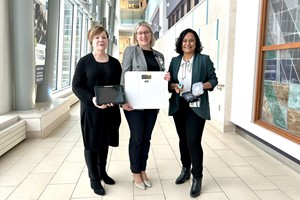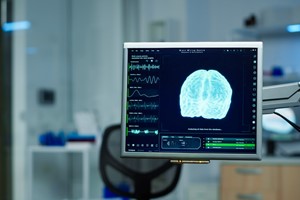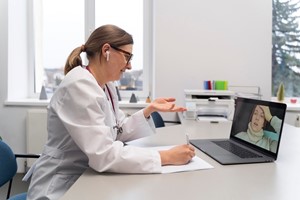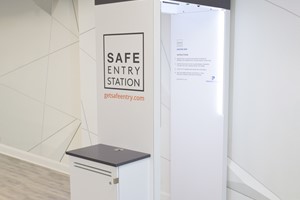Hamilton Health Sciences (HHS) has taken a significant step in advancing patient care by launching a remote symptom monitoring program tailored to patients living with heart failure (HF) and chronic obstructive pulmonary disease (COPD). This innovative initiative, supported by cutting-edge technology, is the first of its kind in Canada and aims to enhance patient outcomes, reduce healthcare costs, and improve provider experiences.
Remote monitoring isn’t new to HHS. Thousands of patients recovering from surgeries have benefited from virtual care programs introduced in recent years, which gained momentum during the pandemic. Building on this foundation, HHS has now introduced a more specialized approach for HF and COPD patients, incorporating MyChart Care Companion—a feature of the Epic hospital information system. Epic, recognized as one of the world’s leading hospital systems, was adopted by HHS in 2022. It enables patients to access test results, appointment details, and other health information through a secure portal on their devices.
If successful, this model could be expanded to support patients with other chronic conditions, with potential to share clinical pathways with other Epic-equipped hospitals across Canada. The system also promises efficiencies, such as streamlining data collection and reducing reliance on costly home monitoring equipment.
“MyChart provides integrated clinical pathways for HF and COPD patients discharged from HHS,” says Jennifer Lounsbury, Chief Nursing Information Officer at HHS. This integration has allowed HHS teams to develop custom monitoring protocols through Care Companion. Piloted in November 2024, the program focuses on enhancing patient care for those managing HF and COPD from home.
Patients enrolled in the program are monitored by a virtual care team comprising registered nurses and nurse practitioners. This team tracks vital signs, provides education, and offers real-time support—all made possible through HHS’s custom Care Companion platform.
HHS’s remote monitoring program brings numerous advantages. For patients with HF and COPD, timely intervention is crucial to avoid worsening conditions. Remote monitoring helps identify early warning signs, reducing emergency visits and hospital readmissions. This proactive care approach supports better health outcomes and overall well-being. By providing hospital-owned home monitoring kits, all eligible patients can access necessary technology. These kits eliminate the need for external equipment rentals, ensuring equitable care and reducing costs for both patients and the healthcare system. The integration of monitoring devices with the Epic system minimizes manual data entry for nurses, streamlining workflows and enabling more focused patient care.
Eligible HF and COPD patients are identified by HHS teams and provided with a home monitoring kit. Each kit includes an HHS-owned iPad for accessing the MyChart app, along with a blood pressure cuff, weight scale, pulse oximeter, and thermometer. These devices automatically sync data to the Epic system, where it is monitored by HHS’s virtual care team. Through Care Companion, patients receive medication reminders, educational resources, and links to community support services. The platform also facilitates video consultations with virtual nurses and nurse practitioners, ensuring timely intervention when needed. Specific care pathways, developed collaboratively by HHS clinical informatics teams and healthcare experts, guide patients in monitoring their health and responding to symptom-related questions.
Kelly O’Halloran, Director of Community and Population Health Services at HHS, spearheaded the development of this program. “I believe patients discharged from hospital can really benefit from remote symptom monitoring overseen by registered nurses and nurse practitioners,” says O’Halloran. Her collaboration with Ontario Health West and other stakeholders secured funding and facilitated the creation of custom protocols for Care Companion. Clinical expertise from leaders such as Dr. Catherine Demers, Director of Heart Function Services, and Dr. Natya Raghavan, Head of Respirology Services, was instrumental in shaping the clinical pathways.
The program’s design drew inspiration from the HHS PROTECT Lab at the Juravinski Hospital and Cancer Centre (JHCC). Known for its research in virtual care and post-surgery remote monitoring, the PROTECT Lab’s Continuus Health program provided a model for integrating remote care into chronic disease management. Plans are also underway to extend Care Companion to cancer patients undergoing outpatient treatments, such as chemotherapy and immunotherapy.
By expanding its virtual care model to include HF and COPD patients, HHS is redefining person-centered care in Hamilton and surrounding regions. This initiative not only addresses the growing demand for efficient, equitable healthcare but also sets a precedent for leveraging technology to improve patient outcomes and streamline provider workflows. With its success, HHS could pave the way for a national standard in remote symptom monitoring for chronic conditions.










